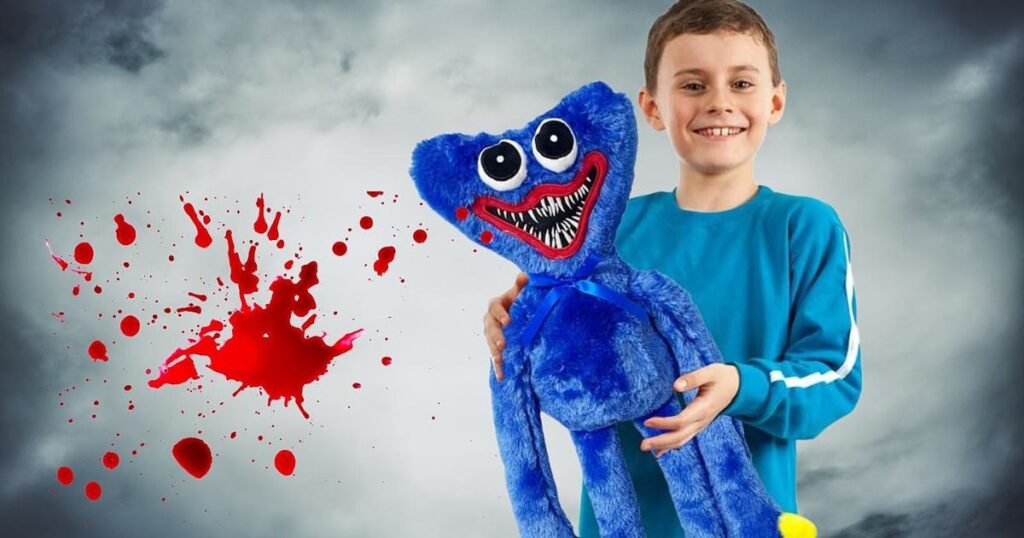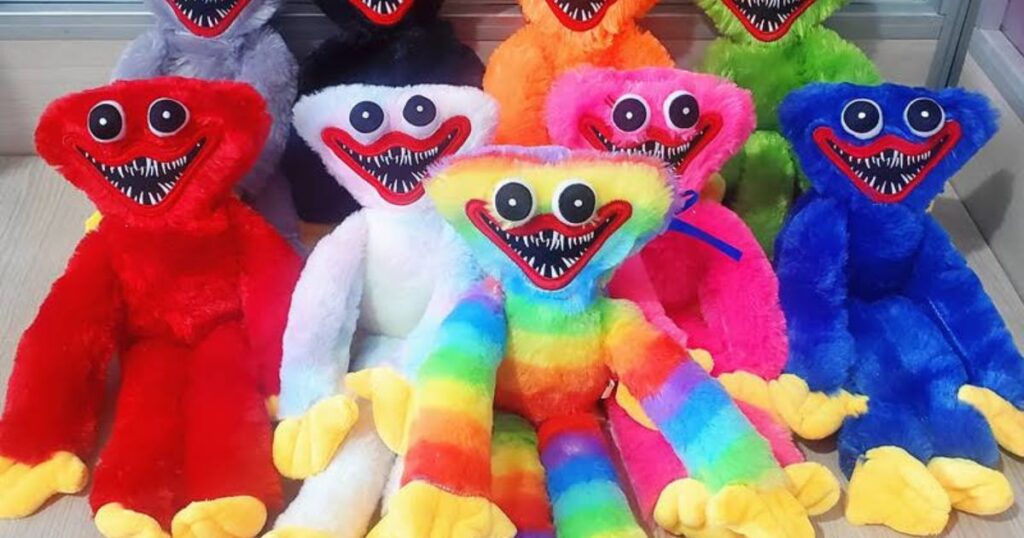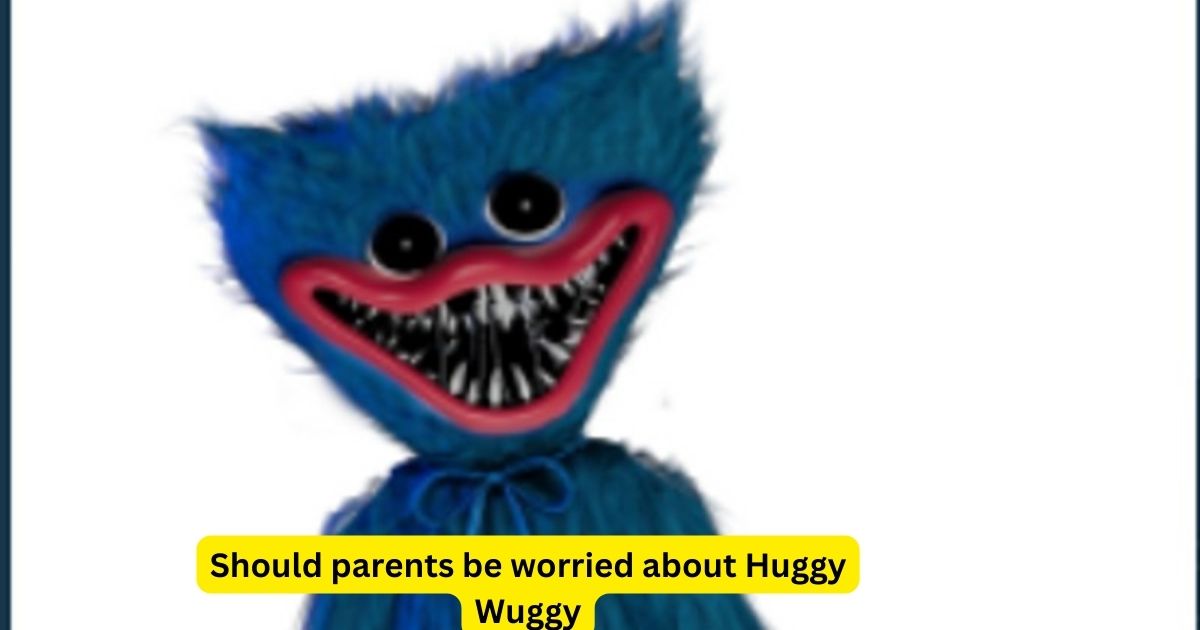The question of whether parents should be worried about Huggy Wuggy has gained attention due to the character’s association with the horror game Poppy Playtime. Huggy Wuggy is a large teddy bear-like monster within the game, known for its ability to hug people to death. However, it is essential to approach this concern with a nuanced understanding of the situation.
There is no concrete evidence linking Huggy Wuggy to any harm towards children. The surge in articles and discussions seems to be fueled by misinformation, particularly surrounding fan-made content shared on platforms like TikTok and YouTube. The controversy has also been fueled by a song titled Huggy Wuggy, created by Igor Gordiyenko, aka TryHardNinja.
The game itself, Poppy Playtime, has received age ratings of 13+ by ESRB and 12+ by PEGI, indicating that it is designed for a slightly older audience. The creator of the game, Zach Belanger, has dismissed the warnings issued by schools as largely unfounded, emphasizing that much of the controversy is based on fan-made content and not the actual game.
To address the question of whether parents should be worried, it is crucial for parents to take the time to understand the game’s content before making decisions about their child’s access to it. This provides an opportunity for open communication between parents and children, allowing them to discuss the game’s themes and decide together whether it is appropriate.
A little history about Poppy’s Playtime
Poppy Playtime is an indie horror game that was developed by Canadian game developer Dustin MacMullin. The game was released on Steam on May 21, 2021 and it quickly gained attention for its unique gameplay mechanics, unsettling atmosphere and clever storytelling.
The narrative of Poppy Playtime unfolds in a toy factory where players take on the role of a new employee tasked with investigating the mysterious disappearance of the factory’s employees. The Poppy Playtime toy company, within the game, has recently gone out of business, and the player’s objective is to clear out the factory’s remaining inventory.
As players progress through the game, they discover that some of the toys within the factory have come to life and become hostile towards the player. These animated toys serve as antagonists, adding an element of horror to the gameplay. One of the most notable antagonists in the game is Huggy Wuggy, a large teddy bear-like monster known for its deadly hugging ability.
Despite its relatively short length, Poppy Playtime has received positive reviews for its innovative gameplay, eerie atmosphere, and intriguing storytelling. The game has gained a significant following on social media platforms, with fans eagerly anticipating news of a sequel or expansion to the original game.
You Might Want To Check: 10 Most Popular Korean Hairstyles For Women
In an interview with Forbes, Zach Belanger, the President and CEO of EnchantedMob, the studio behind Poppy Playtime, emphasized that the game was not created with any specific demographic in mind. Instead, the primary focus was to create a game that the developers themselves would enjoy playing, while ensuring that it remained entertaining for audiences of all ages.
Target Audience of Poppy Playtime?
During an interview with Forbes, Zach Belanger, the President and CEO of EnchantedMob, the studio that developed Poppy Playtime, emphasized that the game was not created with any specific demographic in mind. Instead, the primary focus was to design a game that the developers themselves would enjoy playing, while ensuring that it remained entertaining for audiences of all ages.
This approach suggests that the target audience for Poppy Playtime is relatively broad, encompassing players of various age groups. The game’s appeal lies in its unique gameplay mechanics, unsettling atmosphere and clever storytelling, rather than being tailored to a specific age range. However, it is important to note that the age ratings provided by industry organizations, such as 13+ by ESRB and 12+ by PEGI, offer guidance regarding the game’s content and appropriateness for different age groups.
While the game may attract a diverse audience, parents are encouraged to consider these age ratings and explore the game themselves to make informed decisions about whether it is suitable for their children based on individual preferences and sensitivities.

Age Rating for Poppy Playtime
Poppy Playtime has received age ratings to provide guidance on the appropriate audience for the game. As of the latest available information, the game has been rated 13+ by the Entertainment Software Rating Board (ESRB) and 12+ by the Pan European Game Information (PEGI) system.
These age ratings take into consideration the content and themes present in the game. Poppy Playtime is designed to be a thrilling and unsettling experience, featuring elements of horror, violence and suspense. The age ratings suggest that the game may not be suitable for children under the age of 12 or 13, depending on the region, and is recommended for teenagers and older players.
Parents and guardians are encouraged to be aware of these age ratings and use them as a reference when deciding whether Poppy Playtime is appropriate for their children. It is important to consider individual sensitivities and preferences, and some parents may choose to play the game themselves to better understand its content before allowing their children to experience it.
Creator of Huggy Wuggy song
The creator of the Huggy Wuggy song is Igor Gordiyenko, better known by his YouTube name TryHardNinja. In an interview with Forbes, Gordiyenko discussed the inspiration behind the song and clarified his intentions. The song, titled Huggy Wuggy, has gained popularity, amassing around 5 million views on YouTube.
You May Also Like: Top 10 Korean Hairstyles For Guys
Gordiyenko explained that the inspiration for the Huggy Wuggy song came from the story and lore of the Poppy Playtime game, in which players investigate a toy factory where some of the toys have transformed into sinister killer monsters. Huggy Wuggy is one of the antagonist monsters in the game and the original jingle in the game’s soundtrack inspired Gordiyenko to create a more sinister version of the song.

Frequently Asked Question
What is Huggy Wuggy, and why are some parents concerned about it?
This question seeks to provide an introduction to the character and the reasons behind parental concerns, setting the stage for a more detailed discussion.
Is Huggy Wuggy associated with any harmful activities or content targeted at children?
This question aims to address the specific concerns that parents may have about potential harm linked to Huggy Wuggy, separating fact from misinformation.
What is the age rating for the game Poppy Playtime, where Huggy Wuggy originates?
This question provides information on the age appropriateness of the game, helping parents understand the intended audience and make informed decisions about their children’s exposure to it.
Who is the creator of the Huggy Wuggy song, and what precautions have they taken regarding its content?
This question delves into the creator’s intentions, highlighting responsible content creation practices and the steps taken to ensure the song is not recommended to young audiences.
How can parents approach discussing Huggy Wuggy and Poppy Playtime with their children?
This question encourages parents to engage in open communication with their children, fostering a dialogue about the game’s content and addressing any concerns or questions the children may have.
Conclusion
In conclusion, the concern about whether parents should be worried about Huggy Wuggy is multifaceted and requires a nuanced understanding. As of the latest information available, there is no concrete evidence linking the character to harmful activities towards children. Much of the apprehension stems from misinformation and fan-made content circulating on platforms like TikTok and YouTube.
The game Poppy Playtime, where Huggy Wuggy originates, has received age ratings of 13+ by ESRB and 12+ by PEGI, indicating that it is designed for a slightly older audience. The creator of the game, Zach Belanger, has dismissed the warnings issued by schools as largely unfounded, emphasizing that the controversy is based on fan-made content rather than the actual game.

Passionate wordsmith navigating the currents of trending topics. Crafting compelling narratives that captivate and inform, I explore the pulse of contemporary issues with creativity and insight. Join the journey











